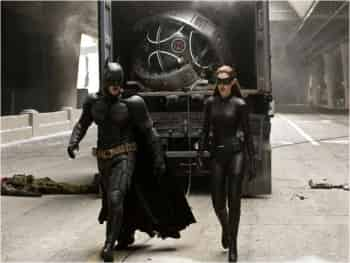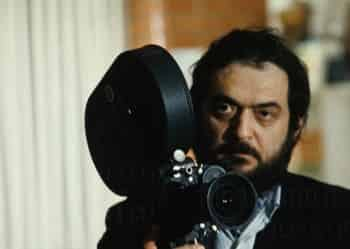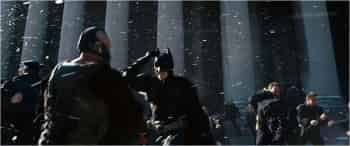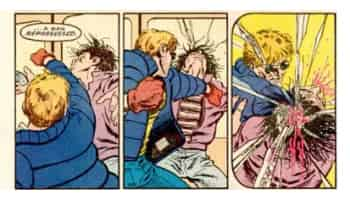
Batman
Can a hero fall in love?
In an analysis of the Christopher Nolan’s Dark Night trilogy, Slimybug arrives at this conclusion: “Many superhero films, including the first two films in this series, are about facing responsibility and obligations to others. The Dark Knight Rises is unique as a film in that it is about hero needing to love himself” (Slimybug, “The Themes and Meanings of THE DARK KNIGHT Trilogy,” www.comicbookmovie.com, January 14, 2014).
For Chris Sims, this may seem like a risky bet, narratively speaking: “But the thing is, as much as they don’t work from a romantic perspective, which is the nature of dramatic tension, they don’t really work from a storytelling perspective, either.” And the female lovers will almost always be supporting characters, serving the hero, but not having any real existence (Chris Sims “Ask Chris #212: The Many Loves Of Batman,” www.comicsalliance.com, September 12, 2014).
In these circumstances, the whole balancing act of writing is to give the lover a genuine existence without his or her role being reduced to that of damsel in distress or sacrificial lamb. These are traps that can be avoided in a two-hour film, but they are harder to achieve in longer-lasting series.
Ideas floating in the air– Part I
Today, it’s hard to create something that’s fundamentally original. Stanley Kubrick is said to have told Jack Nicholson, “You know, in a way every scene has already been done in film. Our job is simply to do them a little better” (Kubrick, Michel Ciment, Paris, Calmann-Lévy, 1999, p. 297). Now that we all have easy access to the accumulated knowledge of centuries, it’s hard to pretend that knowledge doesn’t exist.
In an interview, Sam Mendes said Nolan’s Dark Knight was a revelation in his approach to the latest James Bond (“The Dark Knight Skyfall: New Bond Director Drew Inspiration from Nolan’s Batman,” Russ Burlingame, October 19, 2012). But at the same time, Darren, in his analysis, shows that Nolan’s Batman owes a great debt to the Bond franchise: “What Bond Learned from Batman: The Dark Knight & Skyfall […]” (Darren, them0vieblog.com, October 26, 2012). He adds that these dynamics of mutual influence should not be avoided, but we must learn to draw the right lessons from them.
Managing your concepts
In a blog entry on the film Promised Land, François Cardinal made the following comment: “I simply received confirmation for what I have long believed: the environment rarely makes for good writing, simply because the author’s beliefs take centre stage, at the expense of the story. ” [translation]. (« Terre promise : quand la fiction se met au service de l’écologie… », lapresse.ca, Monday, January 7, 2013).
Burlingame, who was covering a number of writing rules, said: “Give your characters opinions. Passive/malleable might seem likable to you as you write, but it’s poison to the audience.” (“Pixar and Joss Whedon’s Rules For Writers,” Russ Burlingame, comicbook.com, December 8, 2012).
We completely agree with both these statements. In fact, we think that when writers give their opinion through their characters, it takes away from the fiction and turns the story into an essay, which is a completely different literary form. It is also a type of fraud toward the readers, to whom the writer promises entertainment, but then slowly attempts to brainwash them with faddish personal beliefs.
We also believe that manipulating ideas must be done very delicately in a work of fiction. In his analysis of the movie, The Dark Knight Rises, Sebala emphasizes that “The Dark Knight Rises suffers so mightily because it substitutes twists for character arcs, convenience for hard choices and flashbacks for discernible themes” (Sound and Fury: ‘The Dark Knight Rises’ Against Theme and Story, Christopher Sebela, comicsalliance.com, July 27, 2012). In this way, a writer’s good ideas can suffocate the story, at the expense of the characters and of the story.
Which tone to use?
Corey Schroeder reminds us that “Fast-forward to the 90s and you’ve got a new kind of Batman. Watchmen and The Dark Knight Returns have reinvented superheroes as real people with real flaws in the midst of stories that treat the audience’s intellect with maturity” (“Are Superhero Comics Too Serious,” www.comicvine.com, September 14, 2011). Chris Sims goes even further: “The imitators learned the wrong lessons, and instead of creating stories that treated their subject matter with intelligence and craft, which is a difficult matter requiring a great deal of skill, the knock-offs tried to recapture the things that were easy, like cussin’ and violence. They were exactly the same kind of escapist power fantasy that they were pretending to rise above, just wrapped up in cheap, meaningless exploitation and sold to the audience as something that wasn’t for little kids — which in itself is the most immature, teenage motivation something can possibly have” (“What’s Up with the 90s?” www.comicsalliance.com, July 27, 2012).
This may explain why some people wonder if superhero stories have become too violent (“Sex & Violence,” www.comicbookdaily.com, December 9, 2011). In our opinion, violence isn’t the real problem. In the 90s, Frank Miller’s Daredevil stories included some very graphic representations of violence. But they fit the mood. Our main reproach would be the lack of perspective about that violence. If we take the TV series 24, Jack Bauer tortured criminals but we don’t recall any innocent characters being tortured. We feel more uneasy about that situation than about the torture itself.
Writing and Political Opinion (Part I)
The release of the last Batman (The Dark Knight Rises) triggered a fierce media debate about Christopher Nolan’s political intentions. Was his Batman defending against the values of conservatism? The hysteria reached its peak when the villain’s name, Bane, was associated with the name of a company founded by Mitt Romney (Baine Capital). Chuck Dixon, the co-creator of Bane, had to make a public statement to declare his conservative beliefs (Jozef Siroka, « Batman ne porterait pas le carré rouge », www.lapresse.ca, July 24, 2012).
This is reminiscent of when Frank Miller harshly denounced the Occupy movement, a position that was then criticized (Brent Chittenden, “Oh Frank Miller… Creators and Politics,” November 17, 2011, www.comicbookdaily.com “Watchmen Writer Alan Moore Set to Occupy Comics After Spat With Frank Miller”, www.geeksofdoom, December 6th, 2011). However, as Sara Lima pointed out, V for Vendetta remains an excellent comic even if Alan Moore claims anarchy as the best form of government (“Do Politics in Comics Alienate Readers?” www.comicvine.com, October 6, 2011).
We feel that a work of art should never be crushed under the weight of political or social metaphor. Otherwise, the characters become unmoored from reality and their sole purpose is to be spokesmen for the author. Authors who want to deliver a strong social or political message should consider essay writing.






